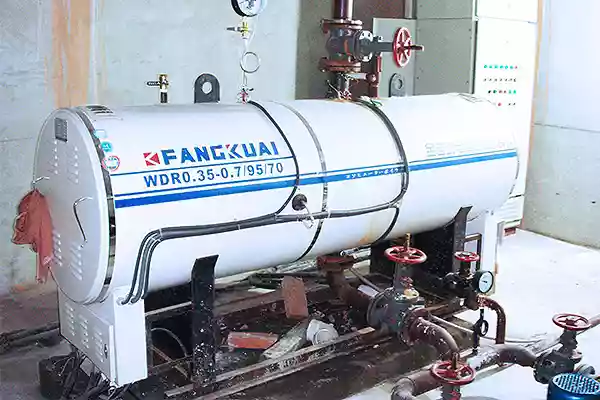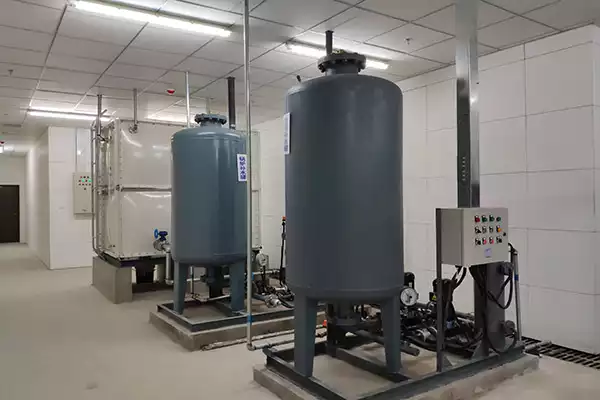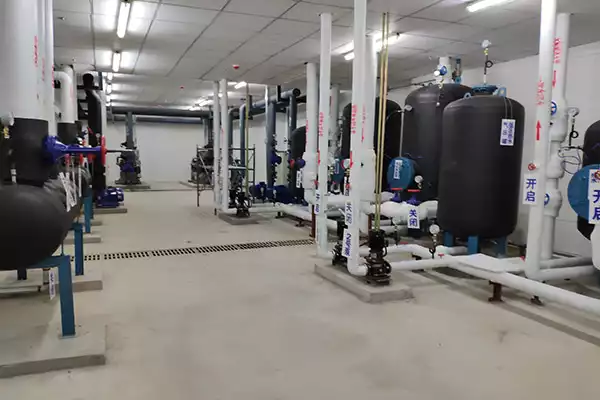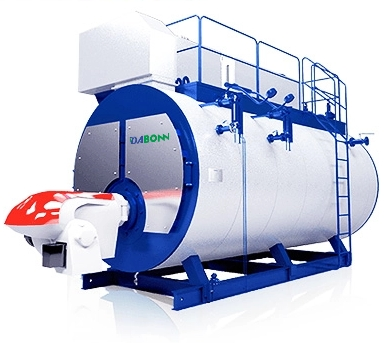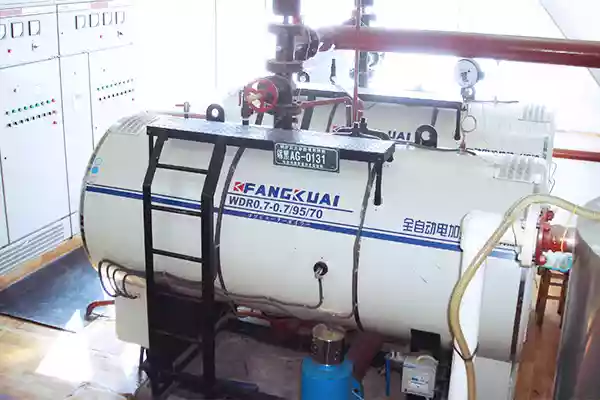
Introduction
There are many factors to consider when choosing a heat pump or gas boiler. To help you make a good decision, we’ve put together this comprehensive guide. It covers everything from how they work and the energy efficiency rating you should expect, to cost comparisons and installation complexities.
Main difference.
The main difference between a heat pump and a gas boiler lies in the source of fuel used to generate heat. A heat pump uses electricity, which can be renewable, to absorb and move ambient heat. On the other hand, a gas boiler uses natural gas, which is a fossil fuel and non-renewable.
Both can be used to provide heating and hot water for your home or business, but there are some differences between them that you should know about before deciding which one is right for you.
Working principle comparison.
Heat pumps and boilers both use the principles of thermodynamics to heat your home.
A heat pump uses a refrigeration cycle to extract heat from the air outside your home and transfer it to water in the heating system. The refrigeration cycle uses electricity, which is why heat pumps are often more expensive than other types of heating systems when you take into account running costs over several years (but not necessarily the initial purchase price).
A gas boiler uses a combustion process to heat up water in the heating system. This can be achieved by burning natural gas or LPG (liquefied petroleum gas) fuel which produces carbon dioxide as well as other pollutants such as nitrogen oxide emissions which contribute towards climate change if released into our atmosphere without being captured by filters or scrubbers installed on chimneys.
Get an online fixed price in 20 seconds:
Efficiency comparison.
Heat pump systems are typically between 80-90% efficient, while gas boilers operate at around 70-80%. So, if you were to use the same amount of energy for both types of heaters (ignoring the cost differentials), then your annual savings would be about 20-30% higher with a heat pump than with a boiler system.
Lifespan comparison.
When it comes to lifespan, heat pumps have the edge. The average lifespan of a gas boiler is between 10-20 years, whereas a heat pump will typically last between 15-25 years. This means you could be saving money on your fuel bills for longer with a heat pump than with a traditional boiler.
Performance and heat output comparison.
Heat pumps can provide more heat than a gas boiler, over a longer period of time. This is because the system does not have to run constantly to keep up with demand, as it does in the case of a traditional heating system. Heat pumps are also more efficient at heating water and cooling your home, so if you’re looking for an energy-efficient solution, then this is one area where they really shine compared with conventional boilers.
For example, let’s say you live in an area with an average outdoor temperature of -5 degrees Celsius (-20 F). If your home is heated by a gas boiler with an efficiency rating of 80%, then it will take about 8 kWh per square meter per day to keep your home at 20 degrees Celsius (68 F). A heat pump with the same 80% efficiency rating would require only 4 kWh per square meter per day to do the same job!
Space usage comparison.
One of the most important factors when choosing between a heat pump and a gas boiler is space. A heat pump requires more space than a traditional boiler, but you may be able to make up for this by reducing your heating bills. If you don’t have enough room in your home or building, then it might not be possible to install either one.
To find out how much floor space each system needs:
- Measure the length and width of your room(s) where they will be installed (including closets).
- Add 2 feet on each side for clearance around each unit if they’re freestanding. Add 4 feet if they’re wall-mounted. Add 6 feet if they’re ceiling-mounted (and remember that ceilings are usually 8 feet high).
Need a new boiler?
Installation complexity comparison.
Heat pump installation process.
The installation process for a heat pump can vary depending on the specific system and the requirements of your home. However, here is a general overview of the steps involved in a heat pump installation:
- Planning: Before the installation, it is important to assess your heating and cooling needs, choose the right size and type of heat pump, and determine the best location for installation.
- Disconnecting the old unit: If you are replacing an existing HVAC system, the old unit will need to be disconnected and removed. This typically involves turning off the breaker, disassembling the indoor unit, and removing the old components.
- Mounting the outdoor unit: The outdoor unit of the heat pump needs to be mounted on a sturdy surface away from obstructions and in a location that allows for proper airflow.
- Installing refrigerant lines: Refrigerant lines are used to connect the indoor and outdoor units. These lines carry the refrigerant that absorbs and releases heat during the heat pump operation. They are typically insulated to prevent heat loss or gain.
- Installing the indoor unit: The indoor unit, which includes the blower and air handler, is installed in a suitable location inside your home. This unit is responsible for distributing the conditioned air throughout the house.
- Electrical connections: Proper electrical connections need to be made to supply power to the heat pump. This involves wiring the indoor and outdoor units, as well as connecting the heat pump to your electrical panel.
- Testing and commissioning: After the installation, the heat pump system is thoroughly tested to ensure proper functionality. This includes checking refrigerant levels, airflow, and thermostat settings.
- Insulation and sealing: To optimize the efficiency of the heat pump, it is important to insulate ductwork, seal any air leaks, and ensure proper ventilation.
It is worth noting that heat pump installation can be a complex process, and it is recommended to hire a professional HVAC contractor with experience in heat pump installations to ensure it is done accurately and safely.
Gas boiler installation process.
The gas boiler installation process generally involves several steps:
- Planning: Research the equipment you want to use for your central heating system, such as a gas boiler that is appropriately sized for your home’s heating and hot water needs.
- Consultation and assessment: Schedule an in-home consultation with a professional installer who will assess your space and provide recommendations for your boiler system.
- Location selection: Choose a suitable location for the boiler installation. The boiler should be near water lines, gas lines, an electrical outlet, and the flue for ventilation. Ensure that the ground or floor is level.
- Boiler installation: Install the boiler according to the manufacturer’s instructions and any applicable codes and regulations. It is important to follow safety guidelines and ensure proper connections for water, gas, and electricity.
- Testing and commissioning: Once the installation is complete, the boiler should be thoroughly tested and commissioned to ensure it is functioning correctly and safely.
It’s important to note that gas boiler installation should be carried out by a qualified professional to ensure safety and compliance with regulations. Additionally, it is recommended to consult the specific installation guide provided by the manufacturer for detailed instructions on installing their particular model.
Carbon footprint comparison.
The carbon footprint of a heat pump is more than double that of a gas boiler. This is because the electricity used to run it has to be generated somewhere, and that somewhere is usually by burning fossil fuels (coal, oil, or natural gas). So while your air conditioning may be cheaper to run with a heat pump than with your old system, the overall environmental impact could be worse if you’re using more electricity than before.
Pros and cons of comparison
Heat Pump Pros:
- Energy efficiency: Heat pumps can be 2-3 times more energy-efficient than traditional gas boilers as they don’t use fuel to generate heat, but rather move heat around. This means lower utility bills and reduced carbon emissions.
- Dual-purpose: Heat pumps can be used for heating and cooling, which makes them a versatile option for year-round comfort.
- Longer lifespan: Heat pumps generally last longer than gas boilers, with an expected lifespan of 15-25 years.
Heat Pump Cons:
- Upfront cost: The cost of installing a heat pump may be higher than that of a gas boiler. However, this is generally offset by lower energy bills and reduced maintenance
- Climate-dependent: Heat pumps rely on the outside air to heat and cool your home. In areas with very cold winter temperatures, they may not be as effective at heating your home.
- Noise level: Heat pumps can produce more noise than gas boilers, especially during the defrost cycle.
Gas Boiler Pros:
- Low upfront cost: Gas boilers generally cost less to install than heat pumps.
- Quick and efficient heating at low outdoor temperatures: In colder climates, natural gas boilers may be a more efficient option for providing heat.
- High heat output: Gas boilers can heat large buildings efficiently and quickly.
Gas Boiler Cons:
- Higher energy bills: Gas boilers rely on non-renewable natural gas as fuel, which can lead to higher energy costs over time.
- Carbon emissions: Gas boilers contribute to carbon emissions and are not considered a renewable energy source.
- Shorter lifespan: Gas boilers generally have a lifespan of around 10-15 years, and require more maintenance over time.
It’s important to consider the particular features and restrictions of your home and climate when deciding between a heat pump and a gas boiler, and to consult with a professional for expert advice.
Get FREE Boiler Quotes
- ✔Get FREE Local Boiler Quotes Today
- ✔Compare The Best Prices
- ✔Save Money On Your New Boiler Today!
Upfront cost comparison.
Heat pump upfront costs are a little higher than gas boilers. The main reason for this is that heat pumps need to be installed in a freestanding unit, which can cost anywhere between $600 and $1,000 depending on the size of your home. In addition to this, you’ll also need to factor in installation costs (roughly $3,000), as well as an inverter ($400-$600). This brings your total upfront investment to around $5-6k.
A basic gas boiler installation will cost around $1,500-$2,000 including labor costs. However, there are many additional features when choosing this type of system such as installing an insulation jacket (around $1-2k) or adding radiators or underfloor heating ($500-$1k).
Running cost comparison.
The running costs of a heat pump are lower than those of a conventional boiler. This is because they use less energy to heat your home and so you will save money on your bills. A typical year’s worth of data shows that an average household heating with a heat pump would spend around $1,700 on electricity compared to around $2,600 for a similar-sized home using traditional central heating systems such as gas or oil boilers.
Conclusion.
The main difference between a heat pump and a gas boiler is the way they work. The efficiency of each system is also very different as well as their lifespan and installation complexity. If you want to learn about the detailed parameters and prices of heat pumps and gas boilers, please contact us at +0086 186-2391-5479.
Looking for boilers with sophisticated manufacturing, and great quality?
Fangkuai boiler can always provide what you want.
Get your best price
Quickly compare 3 FREE quotes
- Engineer quick quote
- The overall delivery speed is fast
- Financial choice
- Low installation costs and cost savings
25 years+ of boiler R&D
More than 20 innovative technologies
